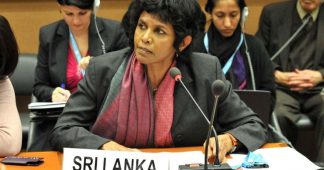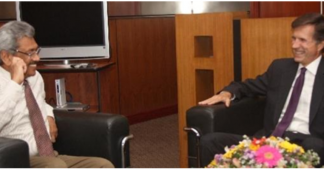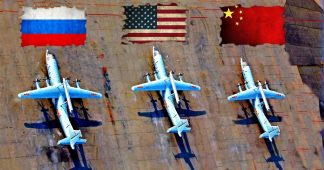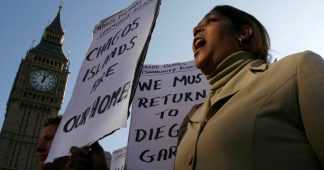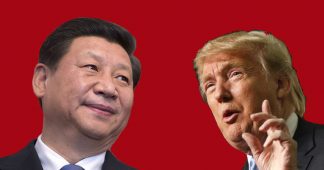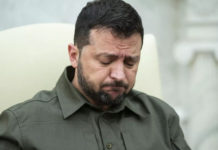by Tamara Kunanayakam,
Former Ambassador/Permanent Representative to the United Nations in Geneva
“[T]here is no friendship when nations are not equal,
when one has to obey another and when one only dominates another.”
Jawaharlal Nehru, the Prime Minister of India
Closing Speech at the Asian-African Conference, Bandung, 1955
Acquisition and Cross Servicing Agreement (ACSA), the Status of Forces Agreement (SOFA) and Millennium Challenge Compact (MCC) are agreements integral to US national security andself-defense strategies, whose goal is “American Self-Preservation,”an ideology incompatible with the Charter of the United Nations and international law.
MCC, crude and dogmatic alignment with US National Security Strategy
A clarification of MCC’s role in America’s national security and ‘self-defense’ strategies is required. The alignment is crude and dogmatic, designed to advance US influence globally and secure allies and partners by imposing upon developing countries, mostly those branded “failed states,” fundamental political, legal and economic reform of the state apparatus and a ‘rule of law’ that benefits US interests in the long-term.
MCC’s central role was ‘codified’ in the 2002 National Security Strategy of US President George W. Bush, which for the first time contained the controversial doctrine of ‘pre-emptive’ war. It elevated development aid to the level of defense and diplomacy as one of the three pillars of the global “War on Terror.”The current President’s 2017 National Security Strategy (NSS) links US military strategies to the imperative of political and economic reform, claimingconsolidation of its “military victories” were made possible only by“political and economic triumphs built on market economies and fair trade, democratic principles, and shared security partnerships”.
One of the most novel and coercive features of MCC is the ‘pre-emptive’ method used to administer aid – it “will reward countries that have demonstrated real policy change and challenge those that have not to implement reform.” Before receiving aid, the country must successfully pass 16 eligibility criteria devised by the Bush Administration ranging from civil liberties to ‘days to start a business.’ In a March 2018 speech on US-Africa relations, the then US Secretary of State, Rex Tillerson, described the coercive essence of MCC that goes far above and beyond the particular project targeted. Referring to a $524 million compact signed with Cote d’Ivoire to improve its education and transportation sectors, Tillerson declared, “This was only possible after the country had implemented policies to strengthen economic freedom, democratic principles, human rights, and to fight corruption. Spurring reforms before a dollar of U.S. taxpayer money is even spent is the MCC’s model.”
The 2017 National Security Strategy reaffirms MCC as a coercive tool to bring“fragile” and developing countries under America’s influence to counter Russia and China, by achieving radical transformation of the recipient State, based on free-market principles, privatization, and good governance: “We already do this through the Millennium Challenge Corporation, which selects countries that are committed to reform and then monitors and evaluates their projects.” MCC is “a model to achieve greater connectivity” in the so-called Indo-Pacific.
It is notable that unlike the MCC of the Bush era, the Trump Administration will no longer provide MCC “assistance” in the form of “grants,” but “loans.”
American self-preservationand theright of self-defense
The US-Sri Lanka ‘defense’ agreements, which logically flow from the infamous US-led Human Rights Council resolution 30/1, are explicit recognition by the Ranil Wickramasinghe regime of America’s global leadership and its hegemonic status, whichcommit the country to a global unilateral system for America’s ‘self defense’.
The US view of ‘self-defense’ is rooted in ‘self-preservation’ and not on some reciprocal relationship between equal subjects of international law, but on combatting a threat to its own interests. It is based on the ideology of ‘American Exceptionalism’ that arrogates to itself exclusive prerogatives and special responsibilities for global governance, which continue to guide US national security and defense strategies.The US President’s 2017 National Security Strategy (NSS) and the 2019 Indo-Pacific Strategy Report (IPSR),bothaffirm US global leadership “is grounded in the realization that American principles are a lasting force for good in the world.”
The notion of American Exceptionalism was best expressed by former US Secretary of State Madeleine Albright, “If we have to use force, it is because we are America; we are the indispensable nation. We stand tall and we see further than other countries into the future.” In May 2015, the then US Secretary of State, John Kerry, claimed America’s leadership of the ‘Indo-Pacific’ “because we have a strong economy and an ability to be able to project”.It is the worldview of a global hegemon that sees itself destinedby divine providence for full-spectrum domination – air, maritime, land, outer space, and cyberspace, and full-spectrum force (2017 NSS).
Historically, “self-preservation” and “self-defense” was used by Nazi Germany to occupy neutral Belgium, neutral Norway, neutral Netherlands, neutral Denmark, neutral Luxembourg,and Poland.
Doctrine of pre-emptive, preventive wars
The 2002 US National Security Strategy(NSS) under President Bush introduced the controversial doctrine of pre-emptive and preventive war, using the 9/11 terrorist attacks as a pretext, which provided the new enemy in the form of terrorism. The existence of terrorists, described as “the unknown unknown,” by the then Defense Secretary Donald Rumsfeld, served to justify a unilateral right to pre-emptive and preventive use of force in ‘self-defense’ against states even before an “armed attack” occur.The US argument was an act of violence by the terrorists amounted to an “armed attack.”
In Afghanistan, for 18 years, the US continues to claim self-defense, extending the right to preventing the return to power of the Taliban. Such unilateral intervention is expressly forbiddenby the UN Charter and unequivocally rejected by both the International Court of Justice and the Security Council.
The US justifies the illegal act by an abusive interpretation of “the right of self-defense” in Art. 51 of the UN Charter,the only exception in the Charter to the use of unilateral force. Contrary to US claims, however, self-defense under the Art. 51 is permittedonly undernarrowly definedconditions: (a) it is an “armed attack”; (b) the armed attack actually “occurs,” and is not just an imminent or potential “threat”; (c) the state using force was the object of an attack on its own territory, not elsewhere, as a sine qua non; (d) it is a temporary right “until the Security Council has taken measures necessary to maintain international peace and security”; (e) it is proportional; (f) it does not affect the authority and primary responsibility of the Security Council; (g) it must be at the request of the victim; (h)the victim must request assistance from the state claiming to act in collective self-defense.
Committing Sri Lanka to the logic of war, not the logic of peace
The 2018 US National Defense Strategy that translates into military terms the strategic objectives outlined in the US President’s 2017 National Security Strategy is based on the indefensibleillogical logic that “the surest way to prevent war is to be prepared to win one,” which is antipodal to the logic that drives the UN collective security system – that war must be prevented at all costs to achieve international peace and security. The documents are replete with bellicosity – enhancing “joint lethality,” “credible combat-forward posture,” “forward force manoeuvre,” “forward deployment”… It is a clarion call to war, but not to any kind of war. It will be a more lethal war – more deadliness, more carnage and more destruction, to be fought together “with a robust constellation of allies and partners.”
It must be recalled that ACSA, SOFA, and MCC are part and parcel of the US concept of a “Free and Open Indo Pacific” (FOIP), a sinister security system whose objective is to impose on countries of two distinct regions and Oceans, a single US-led geographic and geopolitical order founded on rules determined by Washington. The concept not only excludes China from the region as a hostile existential threat to US interests, but is aimed at putting in place “a networked security architecture” under US leadership “to fight and win” a war against China. China as principal adversary is named in the 2017 National Security Strategy, the Pentagon’s 2018 National Defense Strategy, and 2019 Indo-Pacific Strategy Report.
By entering into such US ‘self-defense’ agreements in the context of big power rivalry and the threat of war, the Ranil Wickramasinghe regime is committing Sri Lanka to the logic of war, not the logic of peace, a partner in crime that poses a grave threat to regional and international peace and security and drags Sri Lanka into a war not of its own making.
This warmongering vision of the ‘global’ order is shared by the ruling UNF Presidential candidate Sajith Premadasa as reflected in his 2 October exchange with foreign diplomats at which he outlined his foreign policy objectives not in terms of Sri Lanka’s national interests, but in terms of Washington’s FOIP strategy:“open trade,” “freedom of navigation,” “air and maritime connectivity,” “rules-based world order,” and “violent extremism”.
However, it was unequivocally rejected by Sri Lanka’s opposition party leaders, by letter of 9 August 2019 addressed to the Secretary General of Indian Ocean Rim Association, demanding that the UN Charter-based rule of law be restored in the Indian Ocean by, inter alia, implementing the UN Declaration of the Indian Ocean as Zone of Peace, which designates the Indian Ocean, for all time, as a zone of Peace, together with the airspace above and the ocean floor subjacent thereto.
The Declaration, it must be recalled, was adopted at the initiative of Sri Lanka, joined by Tanzania, backed by the Non-Aligned Movement. While preserving free and unimpeded use of the zone by the vessels, whether military or not, for all nations in accordance with international law, it called on the “great powers” to eliminate from the Indian Ocean “all bases, military installations and logistical supply facilities, the disposition of nuclear weapons and weapons of mass destruction and any manifestation of great power military presence… conceived in the context of great power rivalry,” and halt “further escalation and expansion of their military presence in the Indian Ocean.” The Declaration also calls on littoral and hinterland States, the Permanent Members of the Security Council and other major maritime users of the Indian Ocean to enter into consultations to ensure that, inter alia, “warships and military aircraft would not use the Indian Ocean for any threat or use of force against any littoral or hinterland State.”
Threat to peace and security
Sri Lanka is committing itself not to defending its own national interests, its sovereignty, independence and territorial integrity, but to combattingthreats to “US prosperity and security,” which are named in NSS and NDS as the “revisionist powers” China and Russia, the “rogue regimes” North Korea and Iran, and ‘transnational terrorism.’ None of thecountries mentioned pose a threat to Sri Lanka’s national interests. On the contrary, Sri Lanka has excellent relations with all four countries within the framework of the United Nations and close bilateral ties with China, Russia and Iran.
However, the ‘defense’ agreements involve the use of Sri Lanka’s territory, airports, harbours, defense installations, and infrastructure, for transport of military equipment, training and joint operations with Sri Lankan forces, and other activities, known and unknown, to “enhance joint lethality” inpreparation for an act of aggression against one or more friendly states in the ‘Indo-Pacific’. In doing so, Sri Lanka will find itself a partner in crime and potential target of reprisal or retaliation, posing a grave threat to Sri Lanka’s security.
It was not so long ago that British occupied Ceylon was targeted by Japanese bombs, during World War II, characterized by the independence movement as an imperialist war, which resulted in the panicked fleeing of civilian population to India by boat. The Japanese military raids also took place on an Easter Sunday, in 1942.
The threat to Sri Lanka’s security will not only come from outside. When US forces are permitted to freely roam the land, in their vehicles, without permission, armed, in uniform and with impunity,Easter Sunday type carnage or protests against US occupation could result in Sri Lanka itself becomingAmerica’s military target in the name of “self-defense”.
Bilateral agreements, inherently unequal
The so-called “partnership” entered into with Washington is not between equals.
Bilateral agreements between a global hegemonic power and a small developing country heavily indebted to international capital markets dominated by the power and highly dependent on its market for exports, are inherently unequal.
Since the Bush Administration’s ‘War on Terror,’ which coincided with emerging powers challenging US hegemony, it has increasingly resorted to preventive and pre-emptive unilateral interventions imposing decisions on weaker states or to bilateralism with significantly weaker states to establish US-led collective defense systems (or “collective self-defense” systems), which allow Washington to modify international norms and rules or impose decisions not in accordance with international law, thus, retaining its hegemonic status.
ACSA, SOFA and MCC are pre-existing institutional arrangements that are an integral part of the US national security and national defense strategies designed for ‘American Self-Preservation’ to achieve strategic US goals and objectives “grounded in the realization that American principles are a lasting force for good in the world” (US National Security Strategy, 2017). ‘American Self-Preservation’ is rooted not on reciprocal relationships between equal subjects of international law, but on combatting a threat to its own interests.Its sheer hegemonic power makes the principle of reciprocity impracticable in bilateral negotiations with weaker states such as ours, and it is illusory to believe that ACSA, SOFA and MCC can be “re-negotiated” or “amended” for “mutual benefit.”
Historically, bilateralism is associated with the commercial policies of Hitler’s Germany; it is inherently discriminatory in contrast to the system of collective security based on the UN Charter. The US shift to bilateralism is also reflected in its free trade and economic agreements as an important tool to coerce or reward potential allies and partners to support its geopolitical agenda.
International collective securityv. US-led collective ‘self-defense’
Washington’s unilateral vision of a US-led global orderfor ‘American Self-Preservation,’justified by a divine mission, is diametrically opposed to the universally recognised international order under the UN Charter, based on sovereign equality and international cooperation, respect for sovereignty, independence and territorial integrity of states.
Contrary to the US-led collective system for America’s self-defense, the universally recognised collective security system under the UN Charter seeks to prevent war – not make war –to achieve permanent universal peace based on equal rights and justice for all, in accordance with the purposes and principles of the United Nations.
The UN collective security systemis a system without military alliances. It isbased on multilateralism, the duty to cooperate, and respect for the principle of sovereign equality of States. It expressly prohibits war, as it does the use of force or the threat of use of force against the territorial integrity or political independence of any state and all forms of foreign interference and intervention in its internal affairs, including by the United Nations. The Charter expressly prohibits any unilateral or preventive action outside of the UN framework.
The primary responsibility for maintaining international peace and security lies with the Security Council, with member States agreeing that it acts on their behalf in carrying out its duties. Despite being at the highest level of the international legal hierarchy, the Security Council is required to act in accordance with the Charter, and not violate fundamental norms of international law, customary international law, and treaties, in the accordance with the UN Charter.
The generally binding international lawobliges states to resolveany dispute that may endanger international peace and security through peaceful means, firstly by partiesseeking a solution through “negotiation, enquiry, mediation, conciliation, arbitration, judicial settlement, resort to regional agencies or arrangements, or other peaceful means of their own choice”. Any member State or non-member may bring such a dispute to the attention of the Security Council or the General Assembly. Legal matters should be brought before the International Court of Justice of which all UN members are ipso facto parties.
The role of regional arrangements isstrictly limited to efforts toward pacific settlement of local disputes before referring them to the Security Council. Regional arrangements are forbiddenfrom taking enforcement measures unless authorised by the Security Council.
The use of armed force in the case of collective actionis only permitted under the authority and supervision of UN Security Council, and only once it has determined the existence of “threats to the peace, breaches of the peace, and acts of aggression” and that other measures would be inadequate or have proved to be inadequate to “maintain or restore international peace and security“.
Non-Aligned Movement and Friendly Relations
The Non-Aligned Movement, of which Sri Lanka is a founder member, has contributed in no small measure to developing the universally recognised principles on which friendly relations and cooperation among states must be based, includingthe landmark UN Declaration on Principles of International Law concerning Friendly Relations and Co-operation among States in Accordance with the Charter of the United Nations, which is viewed as an authentic interpretation of the Charter.
The Movement recognisedthat State sovereignty, sovereign equality and international cooperation are fundamental features of an international order that would permit weaker states to exercise greater leverage over their former colonial masters, and, toward this end, focused every effort to enhancing the role of multilateralism,promoting a new international economic order based on justice and equality, and strengthening the collective security system based on the UN Charter.
The identity of the Non Aligned Movement is not determined by the existence of Great Power rivalry. It reflects the aspirations of newly independent states for an independent stand, based on a shared history and a positive perception of their own identity and views. It is essentially an anti-colonial, anti-imperialist alliance to defend their collective interests, protect their freedom and dignity, prevent the restoration of Western domination, support the struggles of peoples still under foreign domination and occupation, promote the right to development, and advance universal peace.
Their experience had shown that wars and alien domination result only in exploitation, oppression, death and destruction, not peace nor development nor social progress. At all cost, a return to Western domination, recolonisation, and war had to be prevented, and the ambitions of the most influential founders of the Movement was to unite the newly independent states to bring their collective weight to bear on the side of international peace, against war. The Movement opposed military alliances and collective ‘defense’ pacts with Great Powers, especially in the context of rivalry between them, since they would be designed to serve Great Powers interests andallow them to intervene in their internal affairs. Such pacts would only bring them closer to war and destruction, and strengthen the forces of war, not peace.
India’s Prime Minister Jawaharlal Nehru, speaking at the 1955 Asian-African Conference in Bandung, energetically opposed US-led collective defence pacts in Asia and the Middle East, including the short-lived anti-Communist Southeast Asia Treaty Organization (SEATO), primarily aimed against China. He argued membership in such pacts would only result in demeaning oneself to a role of “camp-follower of others” and “hangers on,” and lead to the loss of “freedom and individuality”: “It is most degrading and humiliating to any self-respecting people or nation. It is an intolerable thought to me that the great countries of Asia and Africa should come out of bondage into freedom only to degrade themselves or humiliate themselves in this way.”
The Non-Aligned Movement and the principles on which it is based remain valid in a world that continues to be dominated by wars of aggression, foreign occupation and domination, unilateralism, coercion, intervention and interference in the internal affairs of sovereign states, and in which the victims are from the global south and the perpetrators, the US and its Western allies.
Sri Lanka’s decision to go to war if necessary for the preservation of America against an emerging power identified with the developing world, and the threat this poses to the interests of friendly nations and to the multilateral collective security system that the Movement is committed to strengthening, will result in the loss of Sri Lanka’s credibility and its increasing isolation from the majority in the United Nations.
An isolated country is more vulnerable and easy prey to a global hegemon.
International agreements incompatible with UN Charter are null and void
International agreements that are incompatible with the international obligations of the State under the Charter of the United Nationsand impede the fulfilment of the purposes and principles of the United Nations, in accordance with the Charter, are null and void under international law. Besides, secret treaties are incompatible with the UN Charter and unenforceable.
ACSA, SOFA, and MCC violate Sri Lanka’s sovereignty and undermine its ability to fulfil its international obligation to protect its population andensure respect for a broad range of their individual and collective rights: the right to determine the system best suited for their needs and aspirations; the right to exercise permanent sovereignty over their wealth and resources, including maritime resources; their economic, social, cultural, civil and political rights; the right to development; the right to a clean and safe environment; and, the fundamental right to peace and to be free from war.
Sovereignty and its international corollary, sovereign equality of states, are non-derogable peremptory norms of general international law that form the basis of the United Nations Charter, which is akin to a world Constitution. An international treaty that violates sovereignty is null and void and, hence, non-negotiable.
In the event of conflict between a State’s obligations under the Charter, which it is duty bound to fulfil in “good faith,” and its obligations under any other international agreement, Article 103 of the Charter, the supremacy clause, stipulates that it is their obligations under the present Charter that prevail.Subsequent treaties must conform to the Charter and are invalid if they impede the achievement of its purposes and principles, including its provisions concerning international peace and security, friendly relations among states, international cooperation, promotion of human rights and development.
Under Article 53 of the Vienna Convention on the Law of Treaties, “A treaty is void if, at the time of its conclusion, it conflicts with a peremptory norm of general international law.” The Vienna Convention is a restatement of pre-existing law that the International Court of Justice applies as generally applicable international law having reached the level of customary international law.
Toward a new era of peace and prosperity in Sri Lanka and internationally
MCC, ACSA, and SOFA are incompatible with the purposesand principles of the United Nations, as developed in the landmark UN Friendly Relations Declaration and in other international instruments, in accordance with the Charter. If Sri Lanka is to pursue an independent foreign policy that is in conformity with its international obligations, it cannot ignore those principles.
There can be no benefit to Sri Lanka from a bogus “partnership” that involves surrender of territory, institutions, infrastructure and resources to a foreign power to perpetrate acts of aggression against third states, thus also becoming a partner in crime and a potential target for reprisals. There can be no benefit to Sri Lanka from its armed forces’involvement in hostile acts against friendly nations for ‘American Preservation’There can be no benefit to Sri Lanka from fanning existing bilateral hostilities that may lead to regional conflagration and pose a threat to international peace and security. There can be no benefit to Sri Lanka if another terrorist attack in Sri Lanka with alleged international links turns the US forces against our own people.
If there is to be change rather than continuity, every effort must be made to restore Sri Lanka’s sovereignty and promote peace, development, and social justice, unequivocally rejecting externally imposed agendas to transform Sri Lanka into a permanent aircraft carrier for Washington’s hegemonic wars in the Indian and Pacific Oceans.Western dominance must not be allowed to re-enter through the back door, taking the country and the region into war, not peace,and into “full spectrum domination”.
The UN Independent Expert on the promotion of a democratic and equitable international order, Alfred de Zayas, in his full report based on six years of work on the mandate, underlined the importance of international efforts to peace: “In a context of increasing confrontation and competition among world powers, we must re-centre peace as a unifying multilateral objective, and we must ensure that propaganda for war and sabre-rattling are banned.”
